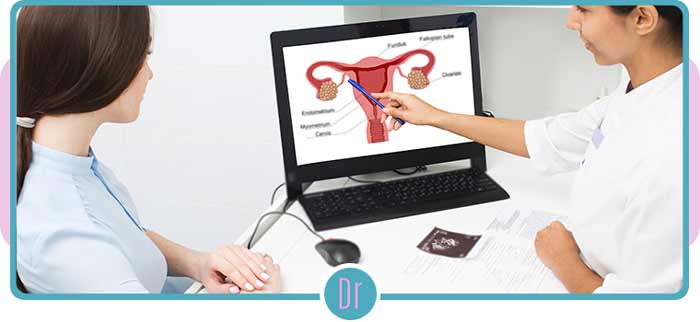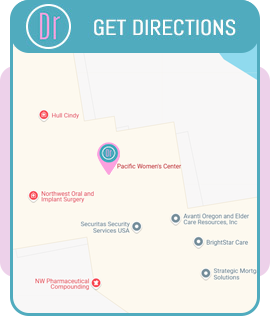What Happens If Fibroids Go Untreated?
If fibroids go untreated, they can lead to a range of complications, including severe pelvic pain, heavy menstrual bleeding, and urinary issues. Over time, untreated fibroids may also cause infertility or complications during pregnancy. Early diagnosis and treatment are important to manage symptoms and prevent long-term health effects. For more information, contact us or schedule an appointment online. We are conveniently located at 911 Country Club Rd. Suite 222, Eugene, OR 97401.


Table of Contents:
What happens if fibroids are not removed?
Can fibroids be life-threatening?
When should you consult a doctor about a fibroid?
What happens when you have uterine fibroids in pregnancy?
Uterine fibroids are very common and develop in most women during their childbearing years. These masses often go undetected as they can be asymptomatic and are usually found during a routine exam. Generally, fibroids will shrink and go away on their own during a dip in estrogen levels given enough time, though this can take months to years.
While some fibroids need surgical removal, many other procedures and medication treatments will shrink a fibroid without excision. First, drugs that are gonadotropin-releasing hormone agonists (GnRH), meaning they stimulate the natural production of a body chemical, can be used to shrink fibroids. This hormone plays a significant role in the menstrual cycle – and will influence the body to take a temporary state similar to menopause, lowering estrogen and shrinking fibroids. Procedures that use radio frequencies (heat) or embolization (vessel blockage to restrict blood flow) effectively treat fibroids without removing them from the body.
It is unlikely that the fibroid will become serious if left untreated; however, it is best to watch its growth to ensure no complications arise. Fibroids can cause infertility or interfere with pregnancy. The chance of experiencing a miscarriage, C section, preterm labor, and bleeding increases when fibroids are present during pregnancy. This also makes the likelihood of improper placenta development rise.
Fibroids are a prevalent condition among women and are typically not life-threatening. Most women who have fibroids do not ever know, and the fibroids will likely shrink on their own. Less than one percent of uterine fibroids are malignant (cancerous), nor do they increase cancer risk in the reproductive organs. Occasionally, a fibroid may grow considerably and impede other organs like the lungs or bowel, though these can be surgically removed. Those with fibroids may experience heavier periods, and if the bleeding becomes excessive, anemia could develop.
The two primary symptoms of uterine fibroids are an abnormally heavy period and pelvic pain. You should contact your doctor if either of these occurs and is persistent, unbearable, or unwavering by medication. In addition, if you are losing excessive amounts of blood, you may risk anemia, in which your blood is not effectively delivering oxygen to tissues.
If you are looking to become pregnant and have fibroids, you should meet with your doctor to determine if the condition has caused infertility. Also, if you are pregnant and have fibroids, you should speak with your doctor and see if treatment is an option or if waiting is best.
Though uterine fibroids pose particular risks to fertility and pregnancy, it is unlikely that the condition will have severe impacts. Fibroids are frequently seen in women, and most will have developed fibroids without knowing it. In addition, there are many different locations where a fibroid may develop in the uterus, and risks vary with each site.
Submucosal fibroids grow just under the inner lining of the uterus, the endometrium. These fibroids pose the most risk to a fetus during pregnancy, though these are also the least likely to develop. The possible complications in pregnancy from uterine fibroids include abnormal placental attachment and delivery, preterm labor, cesarean (C) section, post-delivery hemorrhage, and miscarriage.
If you have fibroids and are looking for treatment or are unsure and seeking diagnoses, Dr. Richard Beyerlein can help here at his clinic for women’s health. Dr. Beyerlein’s specialized expertise, coupled with our exceptional healthcare staff, ensures all of your health needs are met. For more information, contact us or schedule an appointment online. We are conveniently located at 911 Country Club Rd. Suite 222, Eugene, OR 97401. We serve patients from Eugene OR, Springfield OR, Coburg OR, Creswell OR, Cottage Grove OR, Lowell OR, Junction City OR, and surrounding areas.

ADDITIONAL SERVICES YOU MAY NEED
❱ Abdominal Hysterectomy
❱ Bladder Lift Surgeon Q&A
❱ Cervical Cone Biopsy
❱ Colposcopy
❱ Endometrial Ablation
❱ Endometrial Biopsy
❱ Female Sexual Dysfunction
❱ Gynecological Surgery
❱ Gynecology
❱ Hormone Therapy
❱ Vaginal Hysterectomy
❱ Endometriosis Diagnosis & Care



